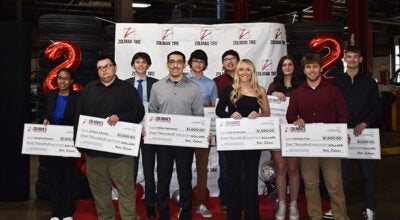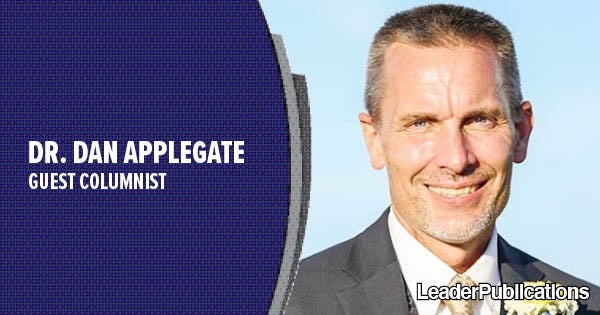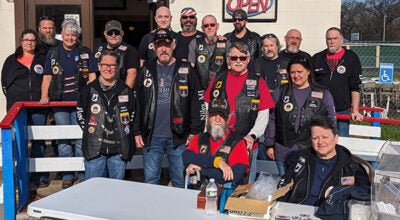SMC chemists present in San Francisco
Published 10:09 am Friday, April 21, 2017
Professor Douglas Schauer and five chemistry students who spent spring break presenting to the 253rd American Chemical Society National Meeting earlier this month reflected on their experience at San Francisco’s Moscone Center to the Southwestern Michigan College Board of Trustees Monday.
Schauer introduced Tobias Robertson, of Berrien Springs; Jeremiah Wilson, of Edwardsburg; Marshall Zerbe, of Decatur; Matthew Reeves, of Berrien Springs; and DeYonte Sullivan, of Dowagiac.
“These students came to work with me this year through a collaboration with our new honors program,” Schauer said. “We found we can recruit very strong students to do undergraduate research through our chem 101 and 102 classes by offering additional honors credit to do research projects on top of their regular classwork.
“The American Chemical Society is THE chemistry organization in the U.S. and, arguably, the world. These guys stood toe to toe with Ph.D. chemists and graduate students and showed off work they are doing in our laboratories. They made me pretty proud in the process.”
Schauer’s Environmental Research Group students work in concert to remove toxic heavy metals from water.
“It was a motivating experience to see other people in our field,” said Sullivan, who plans to continue at the University of Michigan toward becoming a pediatrician. “I talked to a couple of kids from Notre Dame. One is going to get his Ph.D. at Clemson. The other is trying to intern into a job opportunity. It’s nice to see we’re working toward something.”
“It affords a unique experience you don’t get any other place in undergraduate,” Robertson said. “I’ve learned where my interests truly lie in the scientific world that I don’t know how I could have gotten any other way. It’s a very valuable experience for me personally. I presented on my work trying to decipher the mechanism for the removal of heavy metals from water using cilantro.”
“My project looks at whether or not plants will absorb heavy metals from soil,” said Wilson, whose interests lie in molecular biology.
Reeves intends to transfer to Western Michigan University for chemical engineering.
Zerbe, considering genetics, has analyzed lead interactions with pectin extracted from orange peel.
“I’m a pre-med major, so I don’t do anything with plants,” Sullivan said. “I collected hair samples from other students and tested them for lead concentrations.”
“This is high-level research done by undergraduate students,” Schauer said. “Students get real-world exposure to chemical research and build resumes in ways they are not able to anywhere else.”
Schauer studied synthetic organic chemistry, earning his University of Notre Dame doctorate creating cancer drugs.
An opportunity to attend an environmental chemistry conference sent Schauer to Mexico City, whose 8.8 million inhabitants produced 13,900 gallons of sewage a second more than treatment capacity, compared to New York (8.2 million residents, 13,000 gallons of sewage/second, 21,000 gallons of sewage/second treatment capacity).
A canal emptying wastewater created a vast lake 150 feet deep of “raw sewage. They have a lot of farms and not a lot of water,” so wastewater nourished crops.
Mushrooms, dandelions, alfalfa, coconut husks and crab shells have proven successful, but the herb cilantro was prevalent around the University of Hidalgo.
“In our society you buy a Brita filter with activated charcoal,” Schauer said. “Filter costs are prohibitive for them. Plants are another filtering agent. Cell walls contain chemicals that grab heavy metals and remove them from water.”
“The idea students should have a first-rate educational experience if they come to SMC has been part of the college’s fabric since the beginning,” said SMC President David Mathews. “The idea is to get actually not as good of an education as you would at a university, but better because of opportunities afforded first- and second-year students. That’s really one of our goals.”
“We try to make student life two broad areas. Extra-curriculars, such as Campus Bash. At the heart of what we do to support academics are co-curricular activities tied to the classroom, like our Criminal Justice Club sweeping state SkillsUSA competition. They go above and beyond what’s in the classroom to have meaningful professional-level experiences. These students presenting at a national conference is exactly the type of thing you hope happens at a college.”






